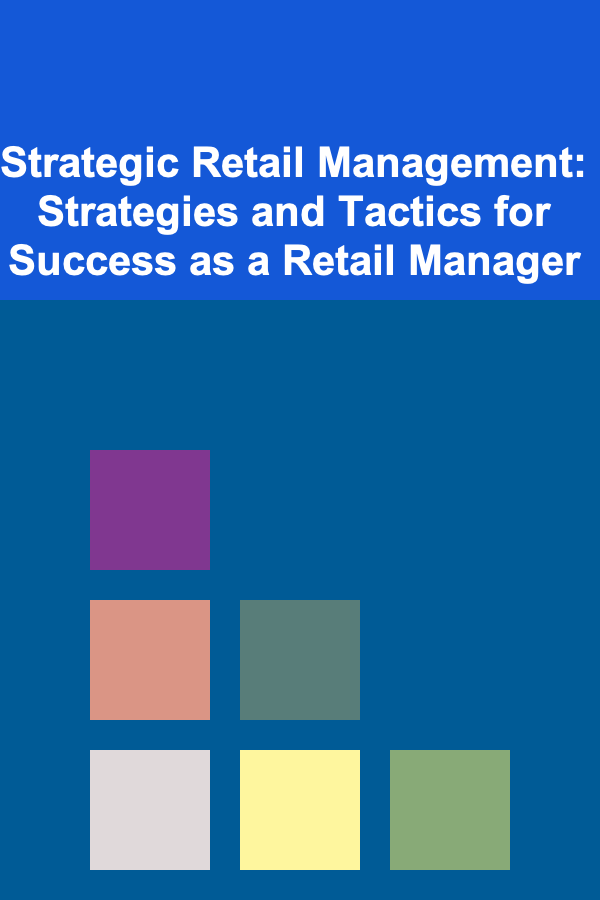
The Power of a Personal Brand: Tips for Job Seekers
ebook include PDF & Audio bundle (Micro Guide)
$12.99$11.99
Limited Time Offer! Order within the next:

In today's competitive job market, it's no longer enough to simply have the right qualifications and experience to land a job. Employers are looking for candidates who stand out, who have a unique value proposition, and who can communicate their expertise and personality effectively. This is where personal branding comes into play. Personal branding is the process of defining and promoting yourself in a way that highlights your unique value to employers, colleagues, and clients. A strong personal brand can set you apart from the competition, elevate your career prospects, and open doors to new opportunities.
In this actionable guide, we'll dive into why personal branding is crucial for job seekers, how to build an authentic personal brand, and practical tips to ensure that your brand resonates with employers and industry professionals.
Why Personal Branding Matters for Job Seekers
1. Differentiation in a Crowded Job Market
The job market is more competitive than ever, with thousands of candidates often vying for the same role. Personal branding allows you to differentiate yourself by highlighting your unique skills, experiences, and values. Instead of blending in with the sea of applicants, a strong personal brand ensures that you stand out.
2. Demonstrating Expertise and Value
A well-crafted personal brand helps you position yourself as an expert in your field. It's one thing to say you have the right skills; it's another to demonstrate those skills in a way that resonates with employers. When you actively manage your personal brand, you're showing the world not just what you know, but how you apply your knowledge and add value.
3. Building Trust and Credibility
Employers are looking for candidates they can trust, and trust is built through authenticity, consistency, and transparency. Personal branding allows you to control the narrative surrounding your career, showcasing your achievements and the value you bring in a clear, authentic way. A personal brand that conveys credibility will make employers feel more confident in your ability to succeed.
4. Networking and Relationship Building
In addition to job applications, networking plays a crucial role in securing a job. Personal branding helps you build a professional presence online and offline, making it easier to form meaningful connections with others in your industry. It allows you to become more visible and approachable, making it easier for people to reach out, offer support, and present job opportunities.
Steps to Build a Strong Personal Brand
1. Define Your Unique Value Proposition
Before you can build a personal brand, you need to understand what makes you unique. What skills, experiences, and qualities set you apart from others in your field? To define your unique value proposition (UVP), ask yourself:
- What are my key strengths?
- What problems can I solve for employers or clients?
- How do I want to be perceived professionally?
- What are the core values that guide my career and work?
Once you have a clear sense of your UVP, you can start positioning yourself in a way that emphasizes these strengths. A strong UVP will act as the foundation for your personal brand and will inform everything you do, from your resume to your social media profiles.
2. Craft a Compelling Online Presence
In the digital age, your online presence is often the first impression potential employers will have of you. It's crucial to curate a consistent and professional image across all platforms. Here are some steps to create a compelling online presence:
- LinkedIn Profile: Optimize your LinkedIn profile to showcase your skills, achievements, and UVP. Include a professional photo, a headline that reflects your expertise, and a summary that highlights what you bring to the table. Make sure to regularly update your profile with accomplishments, certifications, and new skills.
- Personal Website or Portfolio: If applicable to your field, create a personal website or portfolio that showcases your work, projects, and achievements. This is especially important for creatives, marketers, designers, and developers. A portfolio allows you to demonstrate your skills in a tangible way and gives you more control over your brand narrative.
- Social Media: Manage your social media profiles to reflect your professional persona. Share industry insights, thought leadership content, and personal achievements. Platforms like Twitter, Instagram, and even YouTube can be powerful tools for building a personal brand, but be sure to keep the tone professional and aligned with your values.
- Consistency Across Platforms: Ensure that your brand message is consistent across all platforms. Your photo, bio, and key messages should align, whether on LinkedIn, your personal website, or any other online profiles. This consistency will help reinforce your brand identity and make you more memorable.
3. Create and Share Valuable Content
One of the most effective ways to build your personal brand and establish yourself as an expert is by creating and sharing valuable content. Whether through blogs, social media posts, videos, or even podcasts, content creation allows you to share your knowledge, insights, and experiences with others. Here's how to get started:
- Blogging: If you have a particular area of expertise, start a blog where you can write in-depth articles, share industry insights, and provide solutions to common problems. Not only does this help you showcase your knowledge, but it also helps improve your visibility in search engines.
- Social Media Posts: Regularly share updates, industry news, and original content on platforms like LinkedIn, Twitter, or Instagram. Engage in conversations with other professionals, comment on relevant posts, and share your own perspectives to build your credibility.
- Videos and Podcasts: If you're comfortable on camera or have a knack for speaking, consider creating videos or podcasts. These mediums allow you to convey your personality and expertise in a more engaging, authentic way. You can discuss trends in your industry, share personal stories, or interview experts.
4. Network Strategically
Building relationships with people in your industry is a crucial part of personal branding. Networking helps you build credibility, gain insights, and potentially land job opportunities. Here are some strategies for networking effectively:
- Attend Industry Events: Attend conferences, webinars, and networking events relevant to your field. These events provide excellent opportunities to meet new people, learn from experts, and raise your visibility in your industry.
- Engage with Professionals Online: Connect with industry leaders, peers, and influencers on LinkedIn and Twitter. Share their content, comment on their posts, and engage in meaningful conversations. Building a genuine online network can open up new opportunities for mentorship, collaboration, and job leads.
- Offer Value: When networking, focus on offering value to others. Instead of just asking for help or job leads, offer to assist others with their projects or provide insights into your area of expertise. By being generous with your knowledge and time, you'll build stronger, more authentic relationships.
5. Leverage Testimonials and Recommendations
Social proof is a powerful tool in personal branding. Testimonials and recommendations from colleagues, managers, and clients can enhance your credibility and show potential employers that others value your work. Here's how you can leverage testimonials:
- Ask for Recommendations: On LinkedIn, ask colleagues, clients, or supervisors for recommendations that speak to your strengths and work ethic. These personal endorsements can greatly boost your professional reputation.
- Showcase Client Testimonials: If you work with clients or customers, ask for testimonials that speak to the value you've provided. Displaying these on your website or portfolio can enhance your credibility and give potential employers or clients confidence in your abilities.
6. Be Authentic and Consistent
Authenticity is key to a strong personal brand. It's tempting to portray an idealized version of yourself, but in the long run, an authentic brand will be far more impactful. Stay true to your values, communicate your real experiences, and avoid trying to be someone you're not. Consistency also plays a role in personal branding; make sure you present the same message across all your platforms and interactions.
Conclusion
Building a personal brand is an ongoing process that requires thoughtfulness, consistency, and effort. By defining your unique value proposition, cultivating a compelling online presence, sharing valuable content, networking strategically, and leveraging social proof, you can create a personal brand that resonates with potential employers and sets you apart in a competitive job market. Remember, your personal brand is not just about finding a job --- it's about positioning yourself for long-term career growth and success. So take control of your narrative, promote your value, and watch as new opportunities unfold.
Other Products

How to Build a Sales Funnel that Nurtures Leads and Drives Conversions
Read More
How to Create a Pet-Friendly Home for New Pet Owners
Read More
How to Safeguard Your Home's Entry Points Effectively
Read More
How to Use a Bullet Journal for Clutter Management
Read More
Mastering Advertising: A Roadmap for the Modern Advertising Executive
Read More